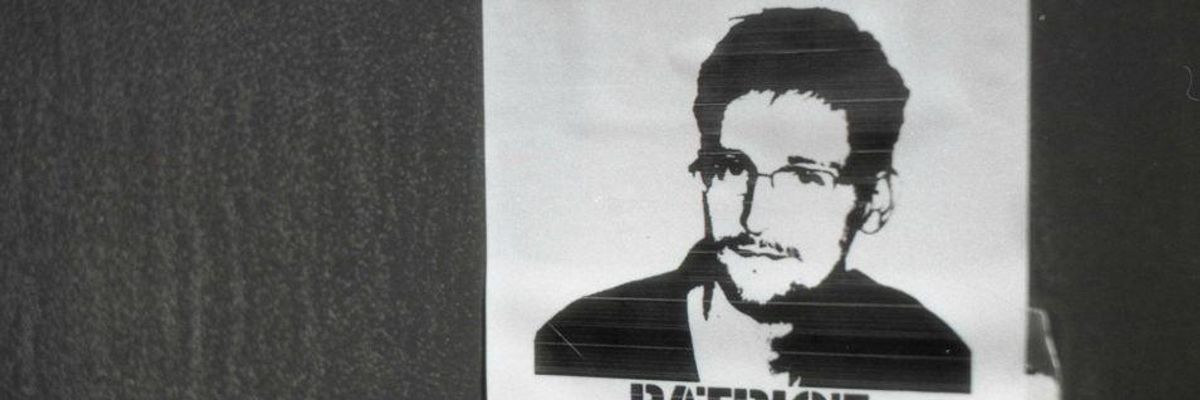The White House on Tuesday formally rejected a 'We the People' petition to pardon Edward Snowden, the National Security Agency (NSA) whistleblower who has been living in exile since exposing the U.S. government's invasive spying operation in 2013.
More than 167,000 people signed the petition urging the government to grant him clemency, stating in their petition that Snowden is "a national hero ... [who] should be immediately issued a full, free, and absolute pardon for any crimes he has committed or may have committed related to blowing the whistle on secret NSA surveillance programs."
Not only will Snowden not be pardoned, the Obama administration said, he should face criminal charges for his actions.
"Mr. Snowden's dangerous decision to steal and disclose classified information had severe consequences for the security of our country and the people who work day in and day out to protect it," Lisa Monaco, adviser to President Barack Obama on homeland security and counter-terrorism, said in a statement on Tuesday. The White House issued its rejection two years after the petition was delivered.
The U.S. filed espionage charges against Snowden after he leaked a cache of NSA documents to journalists, revealing the agency's vast and invasive collection of Americans' phone and internet activity and prompting an ongoing global debate over the role of government surveillance and the nature of individual privacy.
The revelations also opened the door for surveillance reform, particularly through the passage of the USA Freedom Act and the sunsetting of Section 215 and other controversial provisions in the USA Patriot Act.
Snowden currently lives in political asylum in Russia and has repeatedly expressed his desire to come home--and his doubts that he would get a fair trial if he did.
In many ways, the response by the White House is not unexpected. Despite pledging to protect whistleblowers during his campaign for office, Obama has cracked down more on those who expose government misdeeds than any previous president.
Monaco said on Tuesday that if Snowden "felt his actions were consistent with civil disobedience, then he should do what those who have taken issue with their own government do: Challenge it, speak out, engage in a constructive act of protest, and--importantly--accept the consequences of his actions. He should come home to the United States, and be judged by a jury of his peers--not hide behind the cover of an authoritarian regime. Right now, he's running away from the consequences of his actions."
But journalist Glenn Greenwald, who along with Laura Poitras and Ewan MacAskill helped publish the NSA files in 2013, has previously noted that Snowden would be barred under the Espionage Act from publicly arguing that his actions were justified. "[A]nyone who has even casually watched the post-9/11 American judicial system knows what an absurdity it is to claim that Snowden would receive a fair trial," he wrote in June.

